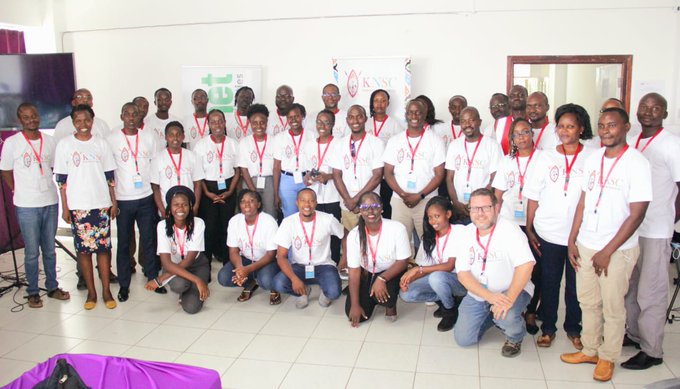The Kenya National School of Community Networks convenes in the first week of March 2022 at AheriNet in Kisumu.
The National School Movement is a concept that has been initiated by APC-LocNet, an initiative convened in partnership with Rhizomatica with support from KICTANet. The initiative is part of an initiative tagged “Supporting Community-Led Approaches to Addressing the Digital Divide” which aims to bring upcoming community networks together through the leadership of a peer community network to facilitate training and mentorship.
The initiative is being executed by the five Meso (intermediary) organizations and supported through funding from FCDO (Foreign Commonwealth Development Organization). The Meso organizations, popularly known as peers within the APC-LocNet initiative, are community networks selected through the LocNet initiative to receive support through capacity building and funding.
National School of Community Networks Model.
The model of the National School of Community Networks is to select seven micro organizations, each of which selects three participants, 21 in total. The 21 participants then go through rigorous training and mentorship in topics they feel are important to them, after identifying the challenges and gaps in their individual institutions. CITAD Nigeria was the first meso organization to conduct the Nigerian School of Community Networks, a five-day event that took place in Kaduna, Nigeria on December 6, 2021. South Africa was the second to launch the National School of Community Networks from January 30th to February 2nd, 2021, which took place in Cape Town. TunapandaNet is the convenor of KNSC (Kenya National School of Community Networks), engaging 7 community networks: Dunia Moja in Kilifi, Aheri in Kisumu, Lanet Umoja in Nakuru, Oasis in Mathare, Athi community network in Meru, Action pour Le Progress in Kakuma, and Ng’arua Maarifa center in Laikipia.
Training Model.
Training and mentoring programs are being undertaken in the areas of technology and network infrastructure, policy and regulation, and sustainability (finance). Each representative from each micro organization is expected to attend one of the training sessions for each of the topics selected, which are running concurrently. Overseeing the convening of KNSC is the APC-LocNet training and mentorship coordinator, Carlos Baca, from Rhizomatica, who is a partner in the LocNet project. We aim to build human and social capital values that existing and emerging community networks can use to strengthen their institutions.
This is a series of our publications on Community Networks.
Catherine Kyalo has a degree in Computer Science and certifications in N+ and CCNA. She has previously worked in client relations, content creation, and IT support with experience in computer networks. She is also an avid reader and content creator. To re-energize herself, she finds power in Yoga. She is the Africa Regional Coordinator for APC-LOCNET project at KICTANet. @Kyalo84Kyalo
![]()




